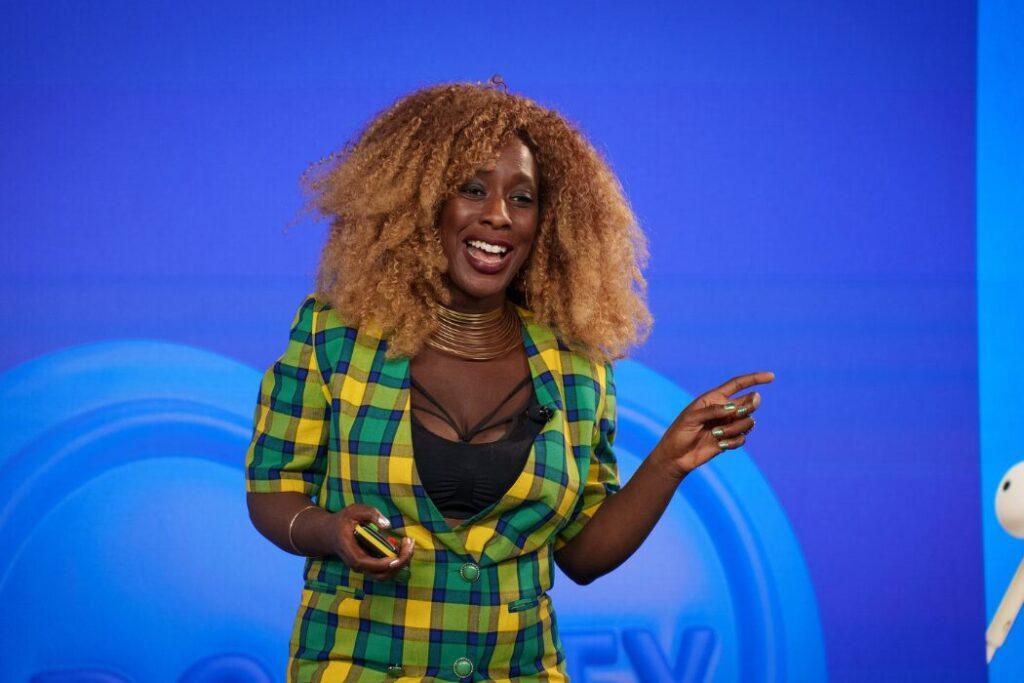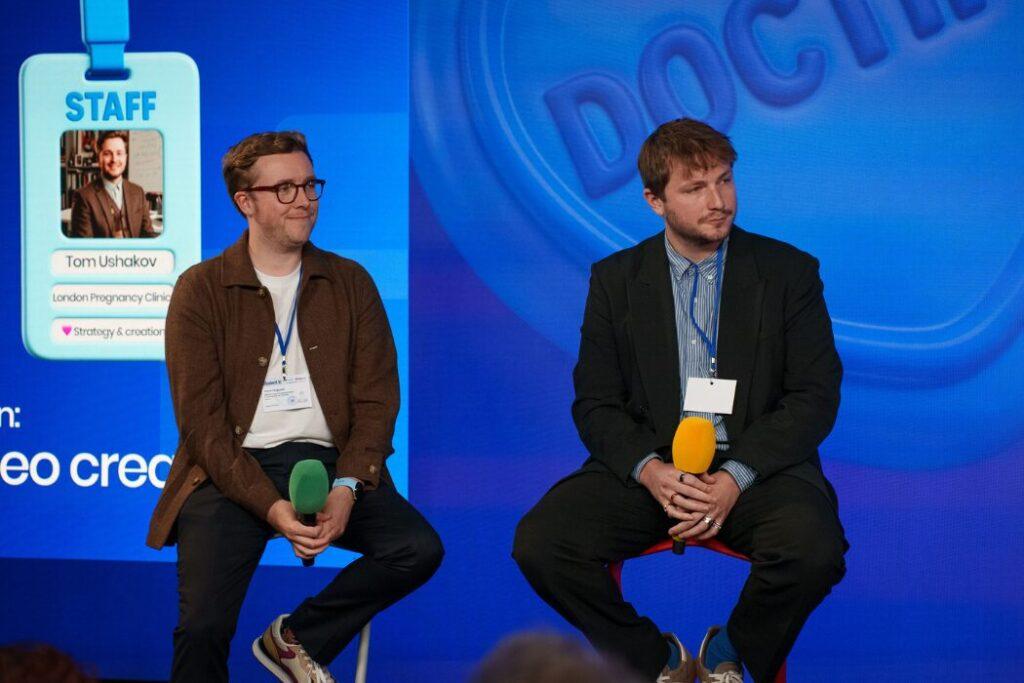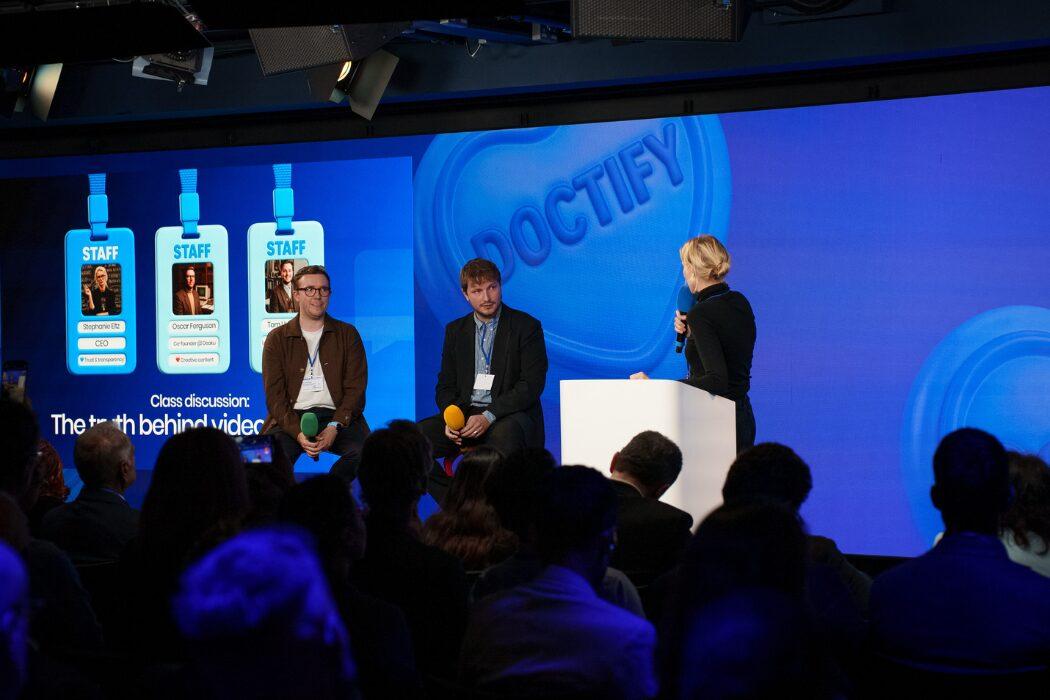In an era where anyone with a phone can post medical advice, how do clinicians ensure patients hear from the right voices?
That question took centre stage at the Doctify x YouTube Health “Med School Reunion” at Google HQ, where more than 250 healthcare professionals gathered to redefine what visibility and credibility mean in 2025.
Because the future of healthcare isn’t just about being seen. It’s about being trusted.
Why visibility matters more than ever
In 2023, health-related videos on YouTube reached 4.5 billion views in the UK – a 35% increase year-on-year. That surge shows a deep and growing appetite for trustworthy, evidence-based health content.
Yet at the same time, around 73% of health-related TikToks are inaccurate or misleading, and one in ten UK adults say they’ve been personally affected by misinformation, rising to one in five among ethnic minority groups.
For clinicians, this presents a clear opportunity: step into the digital arena and use your expertise to replace noise with knowledge.
Our goal is simple — to make accurate, evidence-based health information accessible to everyone, everywhere.
Dr Vishaal Virani, Head of Health at YouTube UK & Ireland
Through partnerships with organisations like the Academy of Medical Royal Colleges, NHS England, and leading healthcare bodies, YouTube is elevating verified clinician content in search results. But scaling credible voices doesn’t happen by accident. It relies on more clinicians joining the conversation with clarity and intention.
Niche the f*** down

Dr Abeyna Jones, Founder of Medic Footprints, opened the evening with a challenge that hit home for every clinician in the room: “Most of what patients find about you online wasn’t created by you.”
Her talk, Prescribing Your Personal Brand: Dosing Your Digital Presence, urged doctors to reclaim their digital identity.
Her key prescription: “Niche the F*** Down.”
Not to shock, but to sharpen.
It’s not about chasing virality or serving everyone. It’s about defining your area of expertise so precisely that the right patients find you. Whether it’s the conditions you treat, the communities you serve, or the unique insights you bring, specificity builds credibility. As Dr Jones put it: “Virality fades. Authority compounds.”
This idea ran through the evening: it’s not about the biggest megaphone – it’s about the clearest signal.
Your profile is your digital clinic
For Dr Suman Saha, Doctify’s Co-Founder & Medical Director, digital reputation begins with your professional profile. “Your profile is no longer a listing, it’s your digital clinic,” he explained. “It’s where patients begin to form trust.”
Doctify’s own data backs it up:
- Profiles with a video see patients become 6x more likely to enquire after viewing a 30-second intro video.
- Profiles with 50+ verified reviews see 5x higher engagement.
- Profiles with peer-to-peer skill endorsements triple engagement and credibility.
Each review, video, and endorsement helps patients make confident choices. Whether you’re on Doctify or creating content for YouTube, the message remains: visibility rooted in authenticity builds lasting trust.
The truth about being a clinician creator
The evening closed with a panel hosted by Dr Stephanie Eltz, CEO and Co-Founder of Doctify, featuring Dr Oscar Ferguson, GP, YouTuber and Founder of Deaku, and Tom Ushakov, Creative Strategy Director at the London Pregnancy Clinic.
Together, they unpacked what it really takes to build a credible online presence — and why visibility should never come at the expense of expertise.
Why they started — and how to begin

For many clinicians, the idea of stepping in front of a camera can feel daunting. But for Dr Oscar Ferguson and Tom Ushakov, it began with a simple motivation: to make trustworthy healthcare information easier to find, and easier to understand.
During his GP training, Dr Ferguson noticed how often misinformation shaped patient conversations. That realisation sparked a mission that has since reached millions. His YouTube channel – now viewed over 100 million times – breaks down complex medical topics with accuracy and empathy, helping patients make informed choices about their care.
Tom Ushakov took a similar path for a different reason. He built the London Pregnancy Clinic YouTube channel alongside his father, a consultant obstetrician and Medical Director of the clinic, to educate patients about fertility, pregnancy and reproductive health, spaces often dominated online by non-clinical voices. Their shared goal: to make reliable women’s health information discoverable, digestible, and human.
When asked how to begin, both offered the same reassurance: you don’t need a studio or a strategy team, just clarity and purpose.
“Before you pick up a camera,” said Dr Ferguson, “figure out your brand. Who are you speaking to, and why?”
“All you need,” added Tom, “is a phone, natural light, and your voice. The hardest part isn’t filming, it’s starting.”
On impact and challenges
Balancing medicine and media isn’t easy, but both Dr Oscar Ferguson and Tom Ushakov agreed that the rewards far outweigh the challenges.
Dr Ferguson recalled moments when viewers reached out to say one of his videos had encouraged them to seek medical help – conversations that sometimes led to life-saving diagnoses.
For Tom, the impact is equally profound. He described how comments from viewers around the world showed that their YouTube channel was reaching people who otherwise might not have access to reliable gynaecological information. “That’s when you realise visibility isn’t about numbers. It’s about impact,” he said.
Both agreed that with visibility comes vulnerability. Feedback, both positive and negative, is part of the process. Their shared advice: focus on the mission, not the noise. Constructive criticism helps refine your message, while trolling is just static.
Three lessons for clinicians creating content
- Define your niche early – Don’t try to speak to everyone. Focus on the patients who will benefit most from your expertise.
- Start imperfectly – Your first video won’t be perfect. Create it anyway and learn as you go.
- Stay authentic – The internet doesn’t need more polish. It needs more professionals who care.
The future of clinician visibility
If there was one message that resonated throughout the evening, it was this: Visibility is not vanity – it’s responsibility.
Every video that clarifies a symptom, explains a treatment, or debunks misinformation makes healthcare more transparent and accessible.
For patients, it builds trust.
For clinicians, it builds reputation.
For the healthcare system, it builds resilience.
So, niche down.
Be clear about who you help, how you help, and why your expertise matters – because virality fades, but credible visibility lasts.
🎥 Watch the event highlights and explore how you can start building your own trusted online presence with Doctify and YouTube Health.
Meet the speakers
Dr Abeyna Jones – Founder of Medic Footprints and Doctors in Industry, Consultant Occupational Health Physician. Champion for clinician entrepreneurship and authentic personal branding. Medic Footprints is a global platform empowering doctors to develop high-value, impactful careers in leadership and business. The Doctors In Industry Score is a self-assessment tool based on the Medic Footprints team’s work with thousands of doctors over the past 10 years. The DII Score measures you on the 6 Key Areas for Industry Career Growth for Doctors, with a 40 page report full of actionable steps towards building an impactful, high-value career for doctors in leadership or business.
Dr Vishaal Virani – Head of Health, Kids & Learning at YouTube UK & Ireland, practicing doctor, and leading voice on bridging clinical expertise with digital communication.
Dr Oscar Ferguson – GP, YouTuber with over 100 million views, and Co-Founder of Deaku, a platform designed to simplify content creation for medical professionals. deaku.com
Tom Ushakov – Creative and Strategy Director at London Pregnancy Clinic, YouTube health content creator, building accessible reproductive health education alongside his father, a consultant obstetrician.
Dr Suman Saha – Co-Founder and Medical Director at Doctify, orthopaedic surgeon, and advocate for transparency and patient empowerment through credible feedback.
Dr Stephanie Eltz – CEO and Co-Founder of Doctify, orthopaedic surgeon, and passionate advocate for clinician visibility and patient trust.
Want to be invited to future Doctify events? Sign up for free – exclusively for practicing clinicians.





